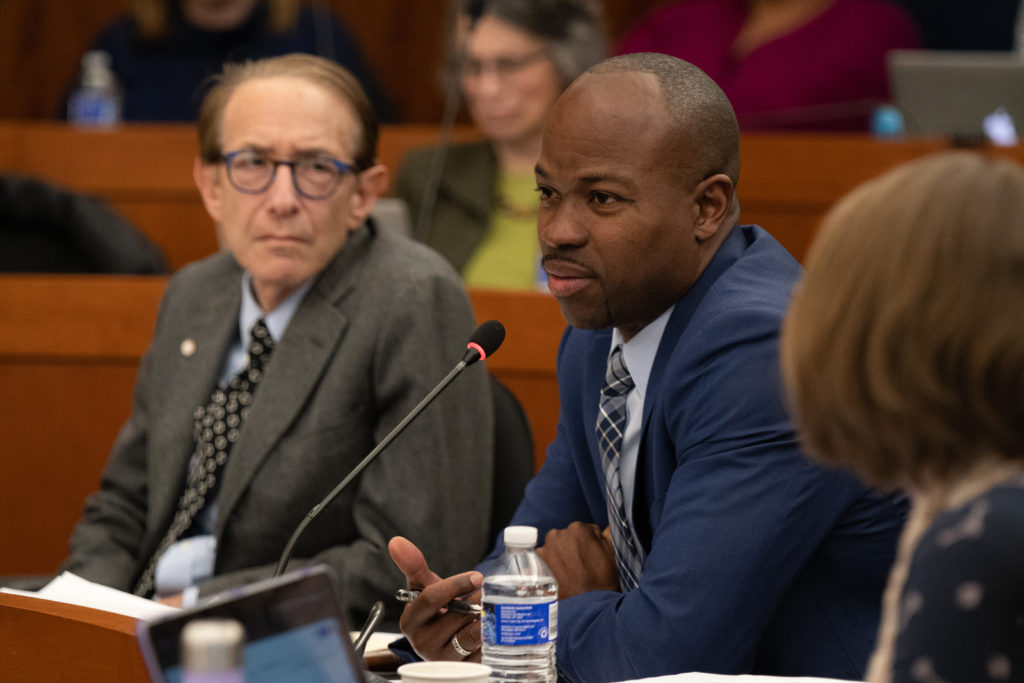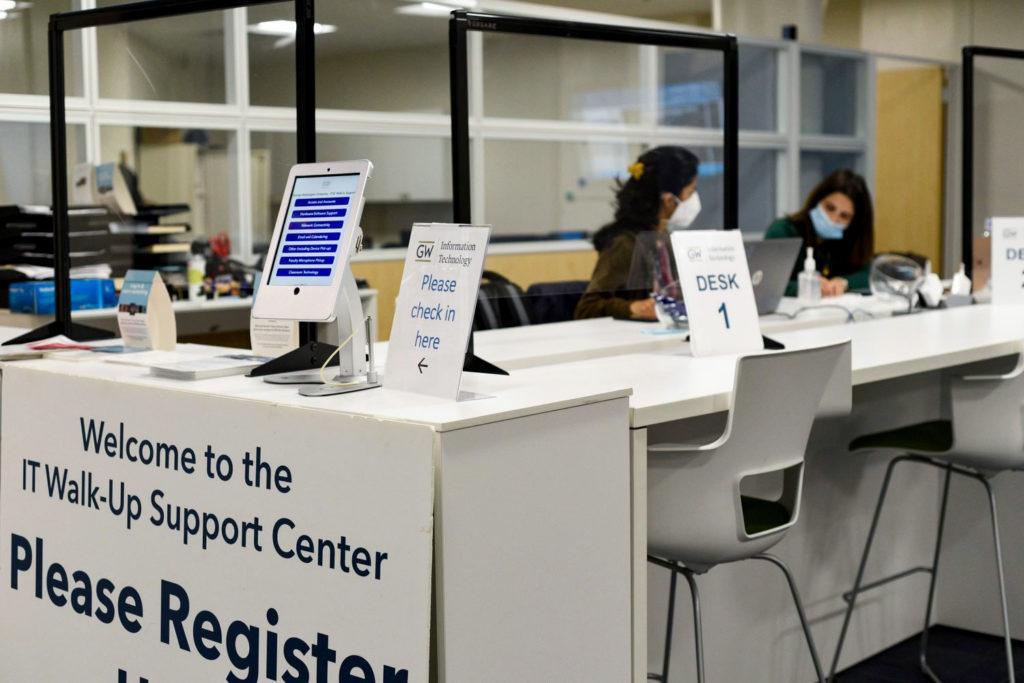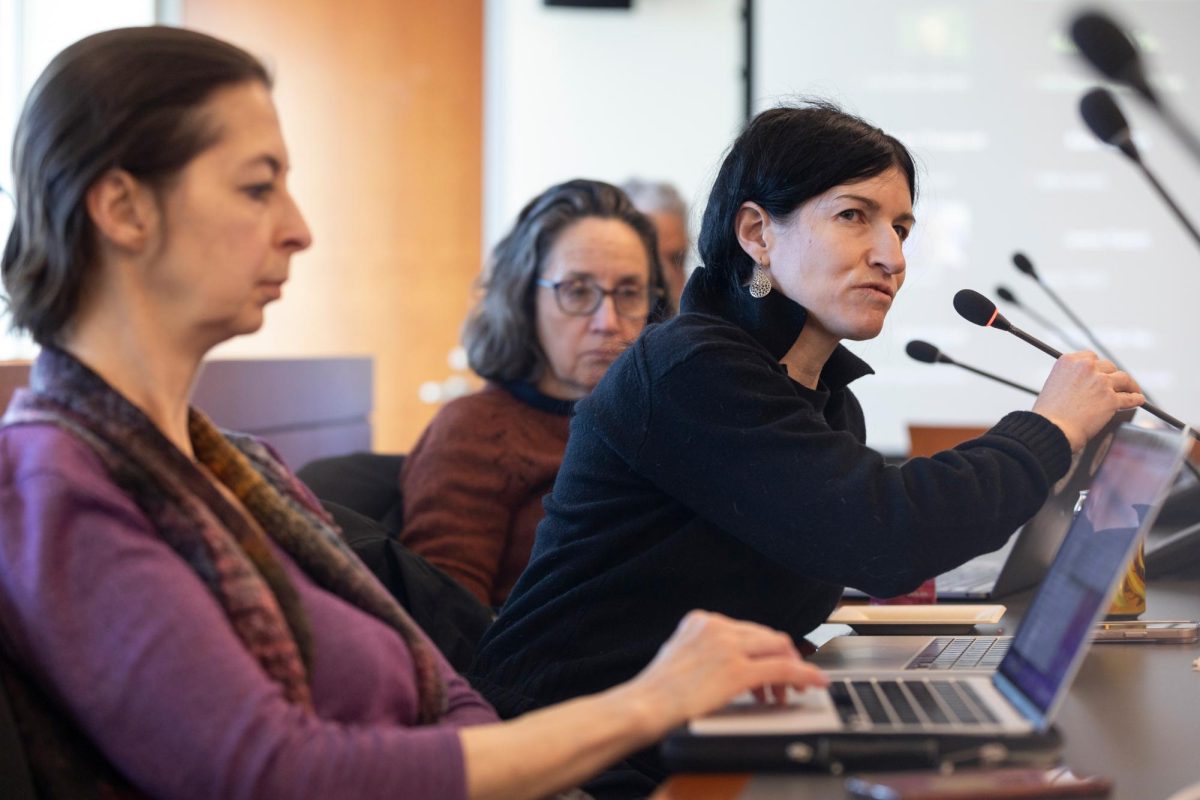Provost Brian Blake said GW supports the American Council on Education’s efforts to encourage U.S. Immigrations and Customs Enforcement to “revisit” newly released guidelines for student visas during the fall semester.
The guidelines state that international students cannot remain in the U.S. this fall if they take courses exclusively online. Blake said officials believe international students who take a mix of in-person and online classes under GW’s proposed fall plan, which is awaiting approval from the District, will still qualify for F-1 visas, according to an email sent to the University community Wednesday.
“GW supports ACE’s efforts to encourage the government to revisit these regulations and offer international students and institutions flexibility as we continue to protect health and safety and achieve our educational mission for all of our students,” Blake said in the email.
American Council on Education President Ted Mitchell condemned the guidelines, calling them “a big step in the wrong direction.” ACE and nearly 40 other higher education groups – including at least three that list GW as a member – sent a letter to Secretary of State Mike Pompeo and Acting Secretary of Homeland Security Chad Wolf last week requesting guidance for student visa holders that provides “flexibility” in the wake of the COVID-19 pandemic.
“We respectfully request that DHS extend and/or expand prior guidance to continue providing regulatory flexibility for international students enrolled at our institutions of higher education in the upcoming 2020-21 academic year and participating in coursework through various alternatives either inside or outside the U.S.,” the groups said in the letter.
The letter explicitly requested guidance allowing international students to complete their coursework online inside the U.S. if their college does not offer in-person instruction.
The International Services Office sent an email to F-1 visa recipients Wednesday, which was posted on the Facebook page Overheard at GW, asking students to complete a “Fall 2020 Study Plan” if they plan to remain in the U.S. in compliance with the new guidance. These students will receive a new Form I-20, which is required to apply for a student visa, containing updated language from the federal government by Aug. 3, the email states.
Paul Wahlbeck, the interim dean of the Columbian College of Arts and Sciences, said in an email following Blake’s message that CCAS faculty and staff “stand by” international students, adding that they are a “valued” and “important” part of the GW community.
“We encourage international and cross-cultural perspectives because we understand how vital it is to the learning experience,” Wahlbeck said. “Let me assure you that we are more steadfast than ever to removing obstacles to learning and helping each of you achieve your academic goals.”
The University Honors Program also condemned the new guidelines Wednesday, calling them “cruel” and “shameful.”
“The Honors Program fundamentally deplores setting unnecessary barriers between students and their education, and we intend to support our international students who choose to be on campus in any ways that we can,” Honors Program administrators and faculty said in a statement.
Harvard University and the Massachusetts Institute of Technology filed a lawsuit Wednesday morning seeking a temporary restraining order and preliminary and permanent injunctive relief from the new guidelines, The Harvard Crimson reported.








